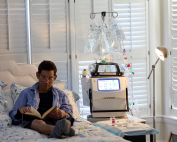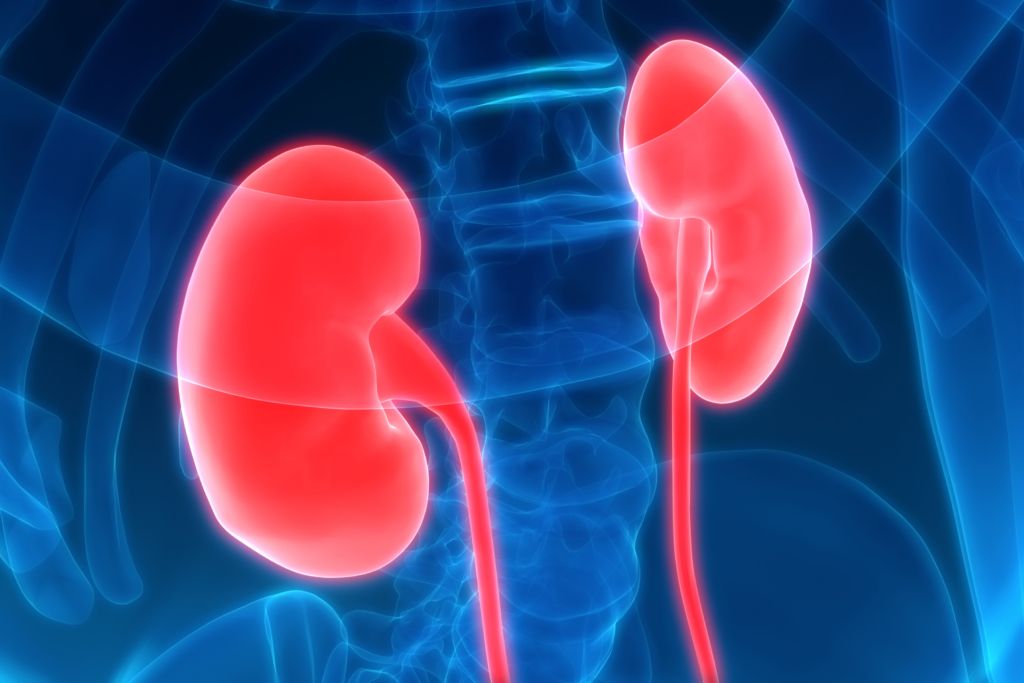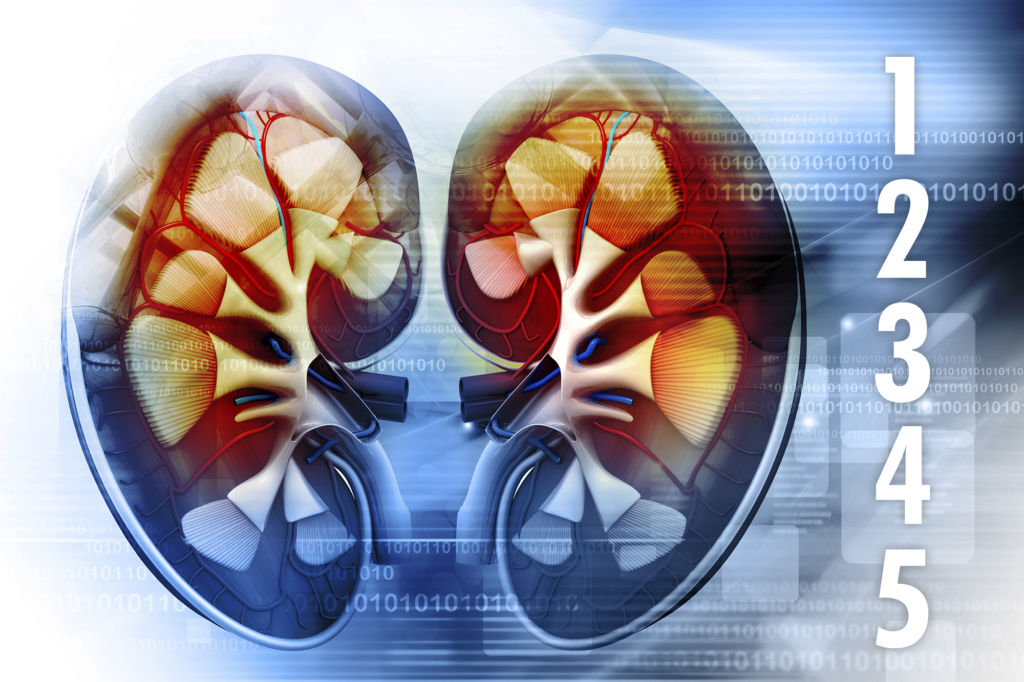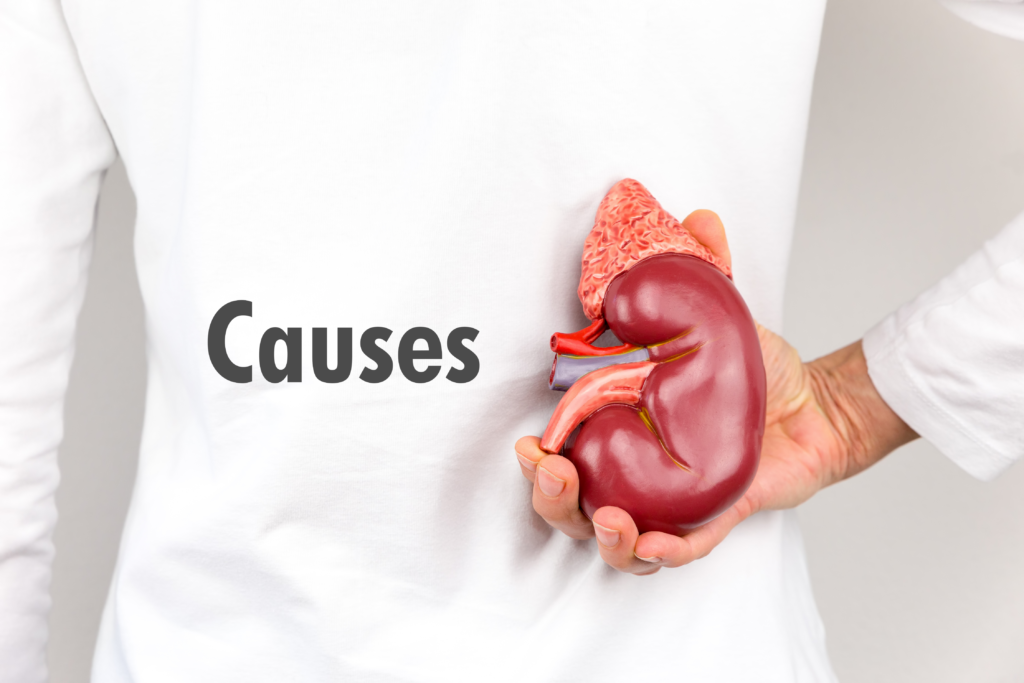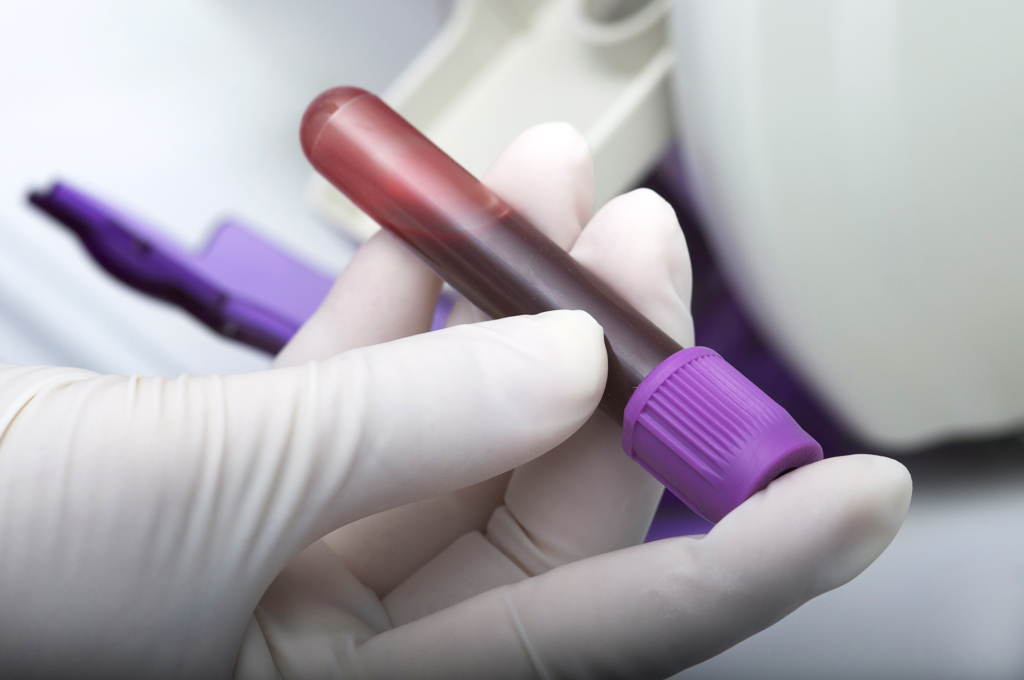What is Kidney Disease?
Explore this section to learn more about chronic kidney disease (CKD). You will find that CKD, which can happen at any age, can have both common and rare causes. Learn about the symptoms, some of which may not show up until a later stage of the disease.
A few simple tests can alert you and your doctor to early kidney disease for additional testing or diagnose you with the disease.
Even if you only have one of the risk factors, it is a good idea to get a screening at one of the free testing sites or at your doctor’s office. There will be minor differences from place to place, but the basic tests used are blood, urine, imaging or biopsy. At a screening your healthcare provider will use a quick assessment to determine what tests make the most sense.
Blood Tests
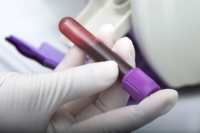
These will range from a few drops of blood from your finger for a glucose (blood sugar) test to a couple of small vials generally taken from your arm. The tests will look at your risk factors such as cholesterol and lipid levels, iron for anemia, thyroid function and bone/muscle function. A more direct test is to measure your creatinine levels to get an idea of how well your kidneys are working. Creatinine levels combined with age, gender and race combine to give an estimated glomerular filtration rate (eGFR). This number is used to determine the extent of damage to your kidneys.
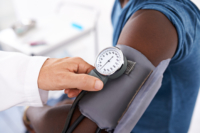
Blood Pressure Tests
Either a machine or traditional cuff will be attached for an automatic or manual reading. High blood pressure is one of the leading causes of kidney failure and an abnormally high result will alert your doctor to do more tests.

Image Studies
Most commonly an ultrasound that will only be used if your doctor suspects kidney disease/trauma. The ultrasound will enable your doctor to view the soft tissue to get an idea of the size and function of your kidneys.

Urine Test
This is a simple test that can be done quickly to determine if there are abnormalities such as excess protein in your urine.
Related Information
Turning Trials into Triumph: A Journey with Kidney Disease
Alethea Walls, DPC Board Member I've learned that living with kidney disease doesn't mean life stops - it just means you learn to live it differently. My journey with kidney disease began [...]
Nocturnal Home Hemodialysis (HHD): Kidney Replacement Therapy with Less Impact on Daily Life
Brigitte Schiller, MD, FACP, FASN, SVP, Medical Officer: Home Therapies, Global Medical Office, Medical Affairs, Fresenius Medical Care Important progress has been made in the delivery of dialysis. The “one size fits [...]
Staying Hopeful Through the Wait
Hasan Artharee, DPC Board Member Polycystic kidney disease (PKD) runs in my family. I watched my grandmother go through dialysis when I was young, and later my mother during my college years. [...]
Diabetic Kidney Disease
The following information will focus on diabetic kidney disease and is taken from the National Institute of Health (www.niddk.nih.gov): What is diabetic kidney disease? Diabetic kidney disease is a type of kidney disease caused by diabetes. Diabetes is [...]
Ask the Doctor April 2024
Velma Scantlebury, MD, DPC Education Center Health Care Consultant 1. Will a transplanted patient who receives a kidney from a diabetic individual become diabetic? Diabetes results from a lack of the ability [...]
For Mike Guffey, Working Was Key to Staying Positive
Mike Guffey When Mike Guffey began dialysis treatments in 2008, one of his top priorities was to ensure he had a reason to keep moving forward, something to look forward to when [...]


